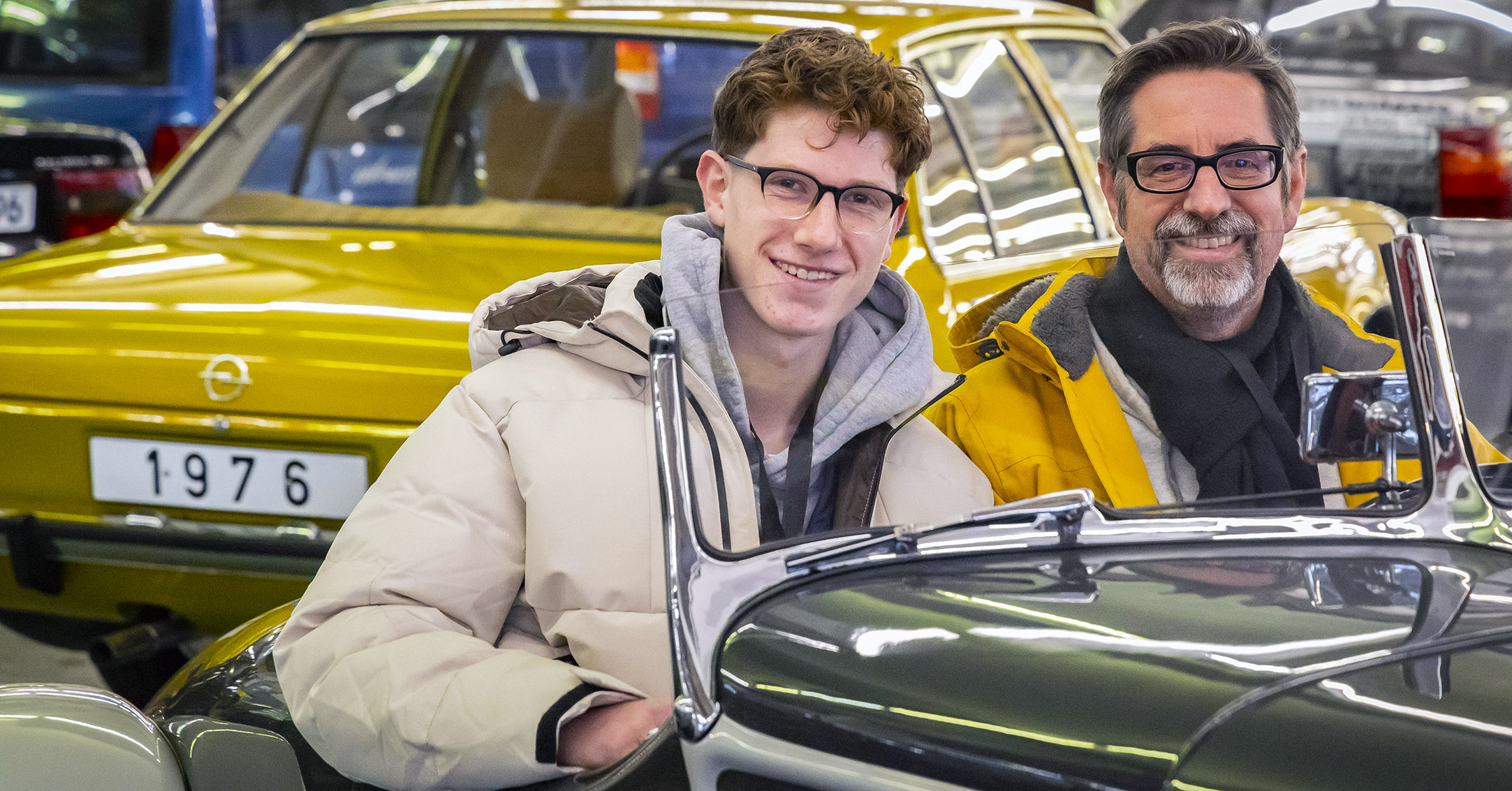When it comes to 125-year-old automotive technology, proven experts are required: Opel Classic employee Jens Cooper turns the knob of the battery ignition, opens the fuel tap, the carburettor is flooded, while colleague Werner Bachmann gets ready to turn the crank with his sleeves rolled up. All parameters must be correct in order to overcome the starting resistance and to set the pistons of the single cylinder in motion. Three powerful attempts later, the 3.5 horsepower engine comes to life. The delicate motor vehicle cruises past the visitors. The faces immediately light up and smartphones are readied. It is the star of the day: the – still roadworthy – the Opel Patent Motor Car System Lutzmann, with which Opel’s automotive history started in Rüsselsheim in 1899.
Classic Car Tours to mark birthday
At the start of the anniversary year “125 years of automobile production”, 125 employees and 125 relatives enjoyed exclusive tours of the Opel Classic workshop – a place where the fascinating history of technology and culture comes together. A team from Opel Classic and Internal Communications guided visitors through the “holy halls” with exciting anecdotes. From the lantern to the matrix light, from the self-supporting body and the first assembly line production in Europe to the modern electrified vehicle platforms – everywhere you can feel what Opel has stood for since the beginning like no other car manufacturer: the democratisation of technologies.
Both hands are really busy when you set off.”
– Jens Cooper on driving the Opel System Lutzmann –
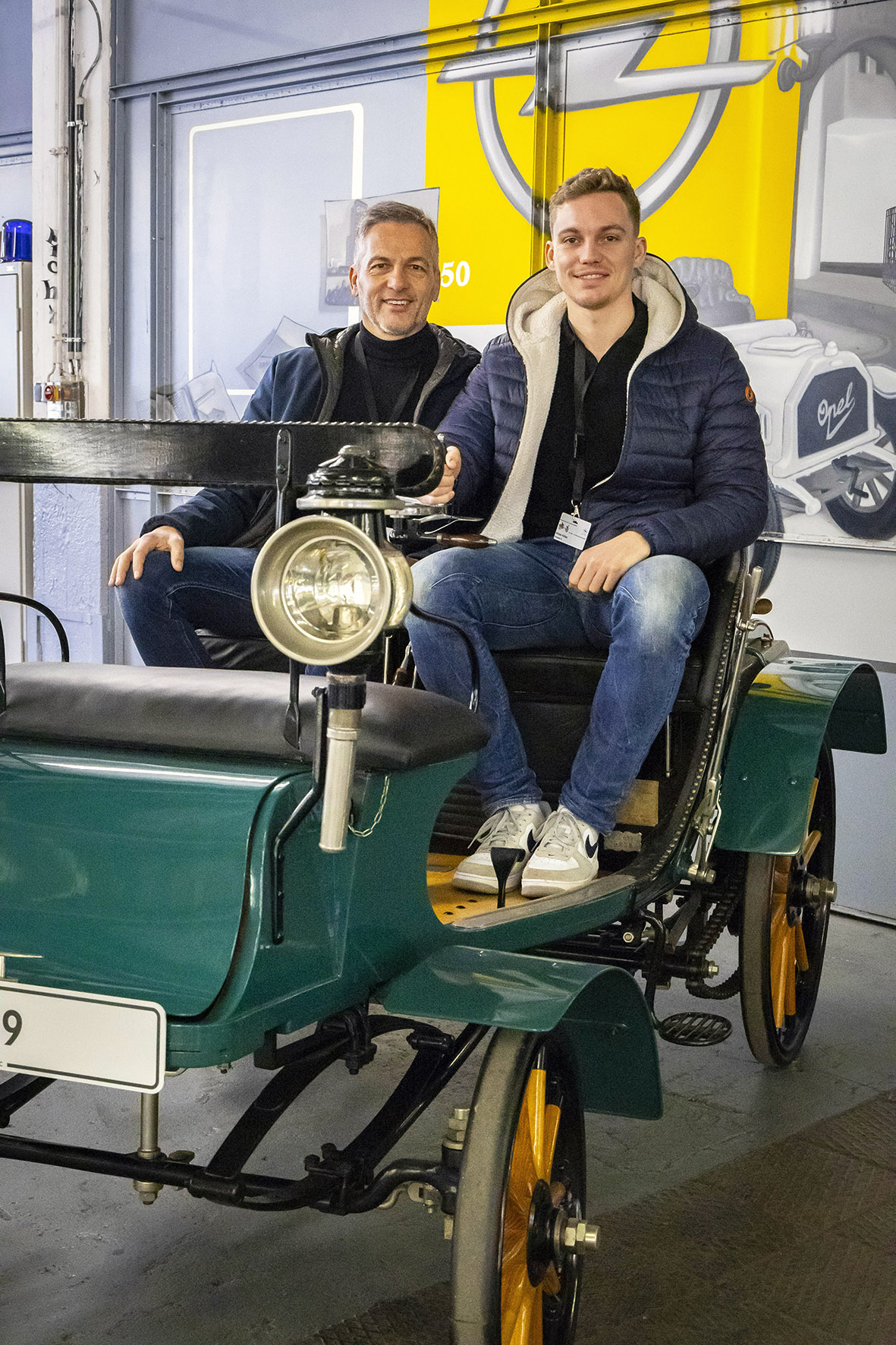
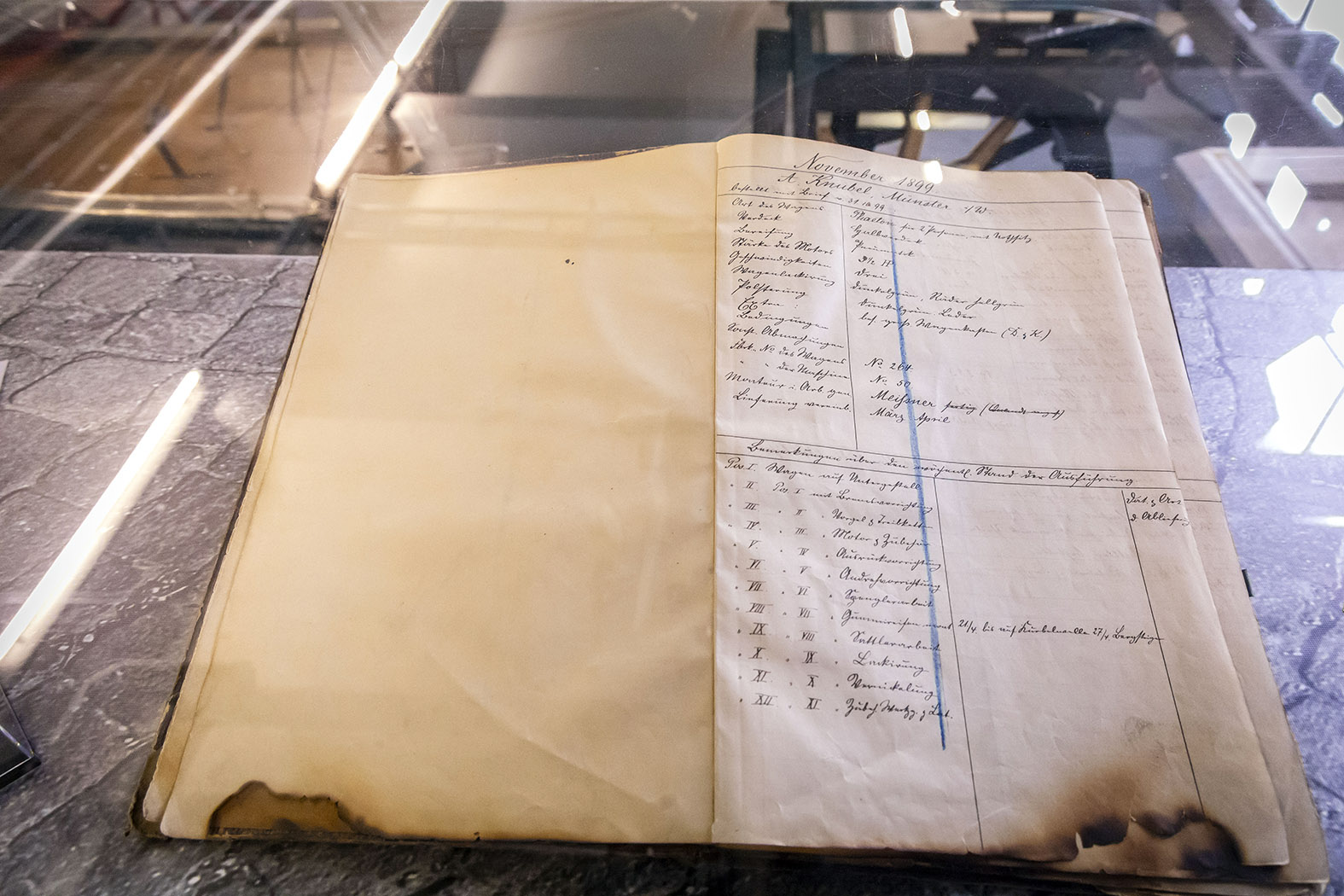
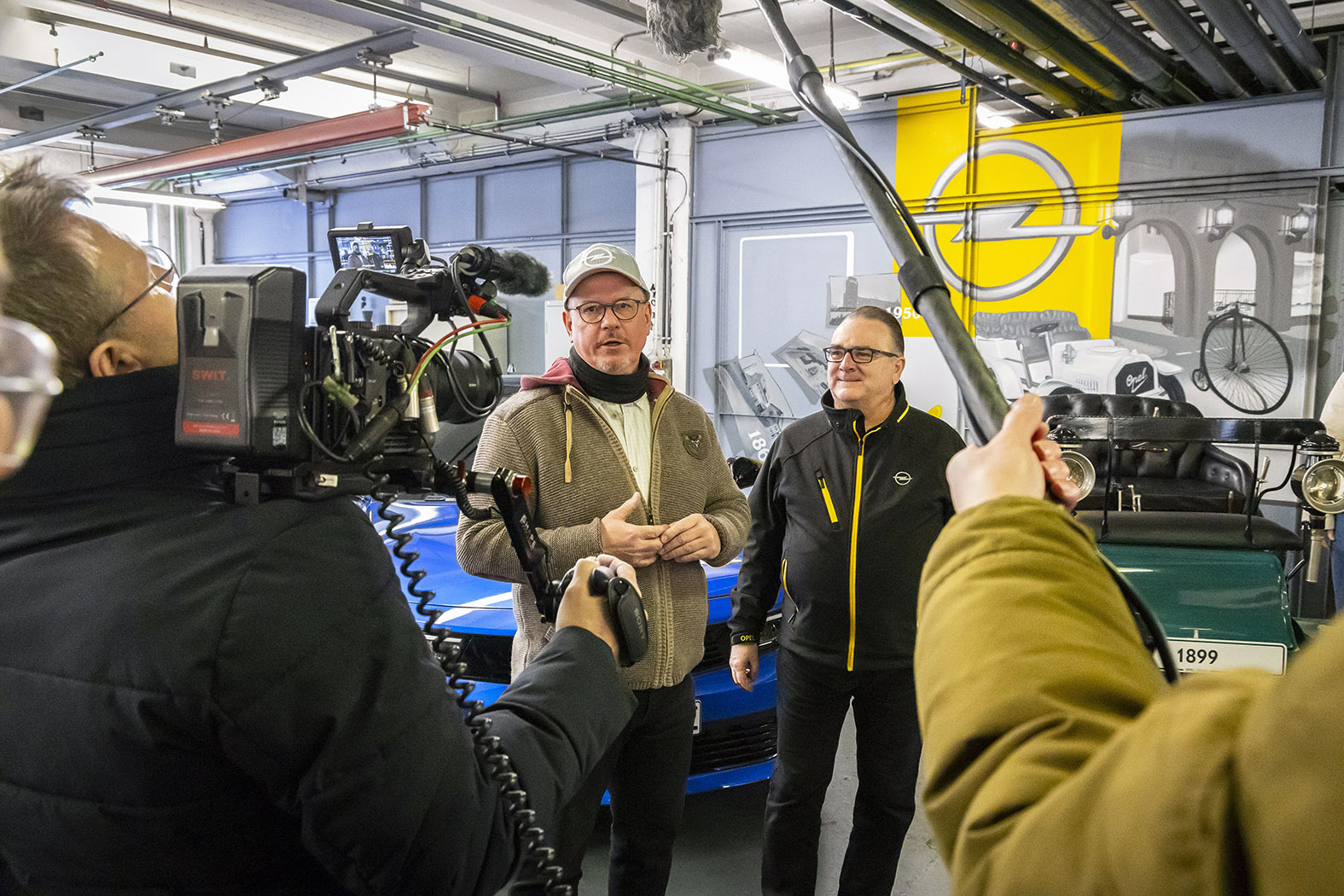
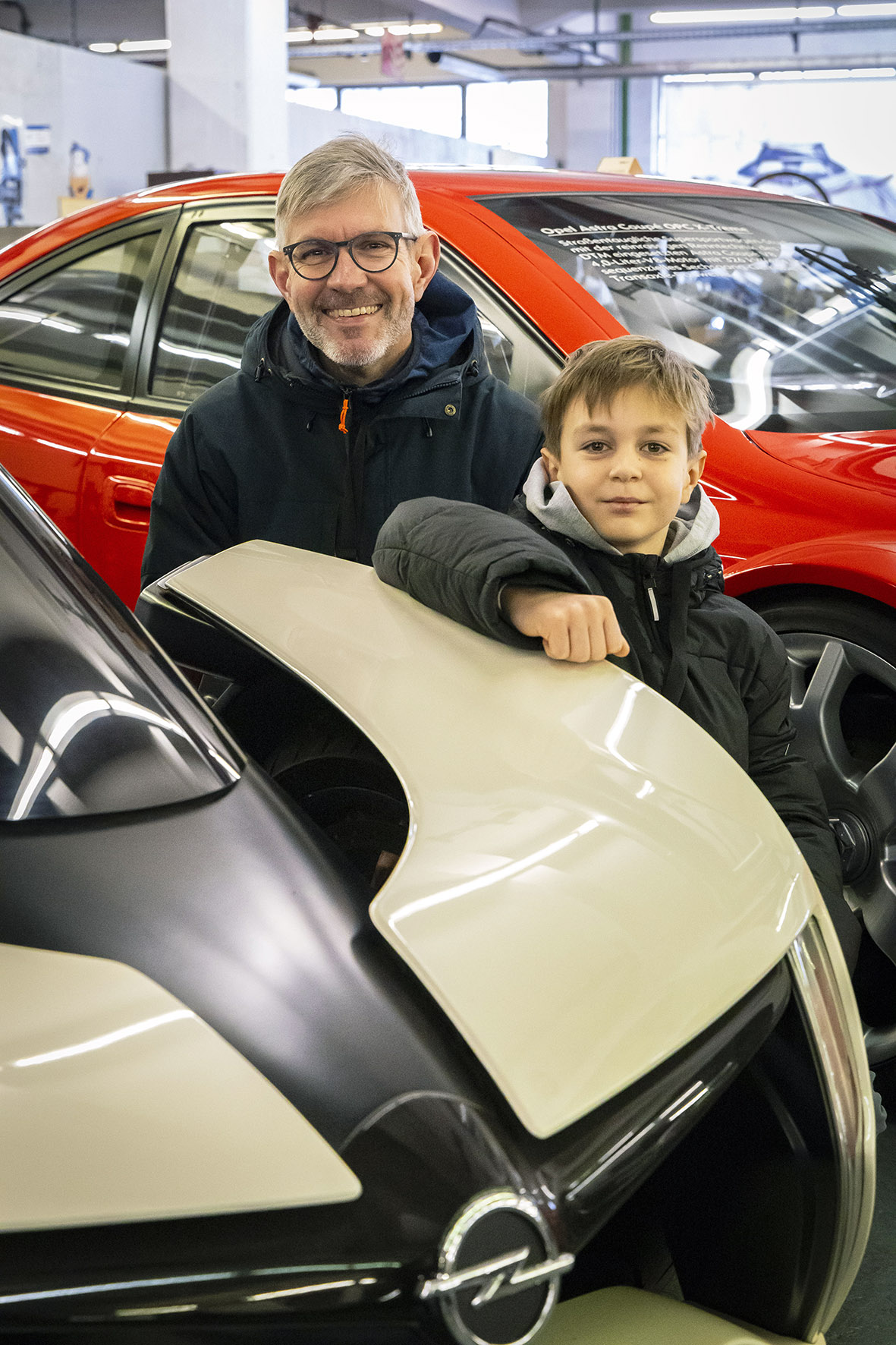
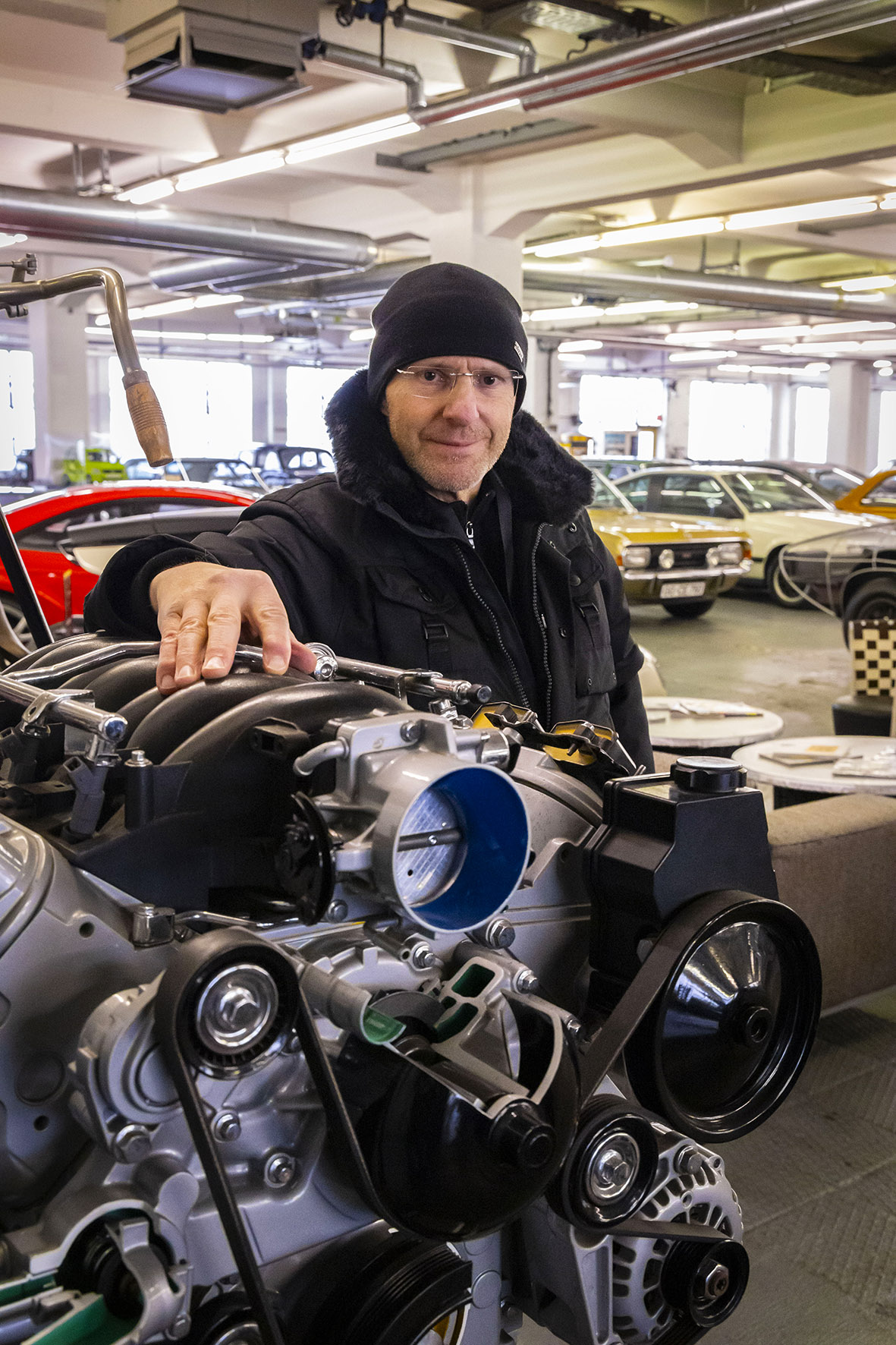
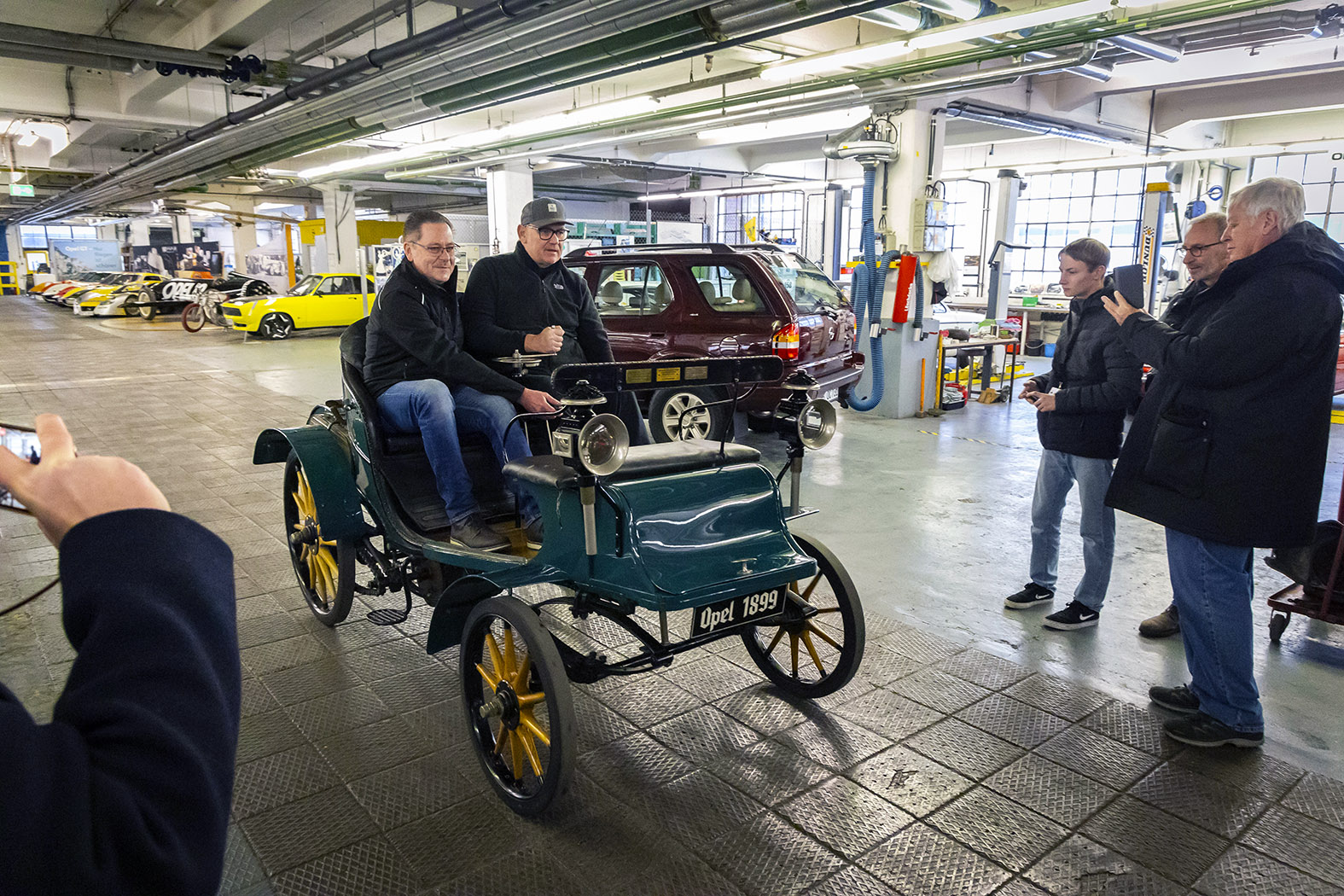
“There were many carriage builders at the end of the 19th century, but only a few engine builders,” Opel communications manager Roland Korioth tells visitors about the beginnings. When the Opel family concluded a contract with the Dessau court locksmith Friedrich Lutzmann to purchase his motor vehicle factory on January 21, 1899, the Rüsselsheim company was suddenly a member of the exclusive ranks of automobile manufacturers. The second order book with the orders for the Lutzmann is on display. In contrast to the first book, it survived the major fire at the Opel factory in 1911 with minor burn marks.
Collection brings back memories
“How do I look as a Mafiosi?” Dirk Ringena asks as he and his son Tom sit in the Moonlight Roadster with the steep chrome radiator grille and curved fenders. He was particularly fond of the 1.8 liter Sport Roadster, built in 1933. “A few years ago, I discovered a copy of the Moonlight Roadster at an Opel dealer – it was supposed to cost 60,000 euros,” he says. That went beyond his budget, “which makes it even nicer that I can get behind the wheel today.”
“There wasn’t much more in the boot than our five swimsuits.”
– Lothar Christ remembers a summer holiday with the Kadett A Coupé–
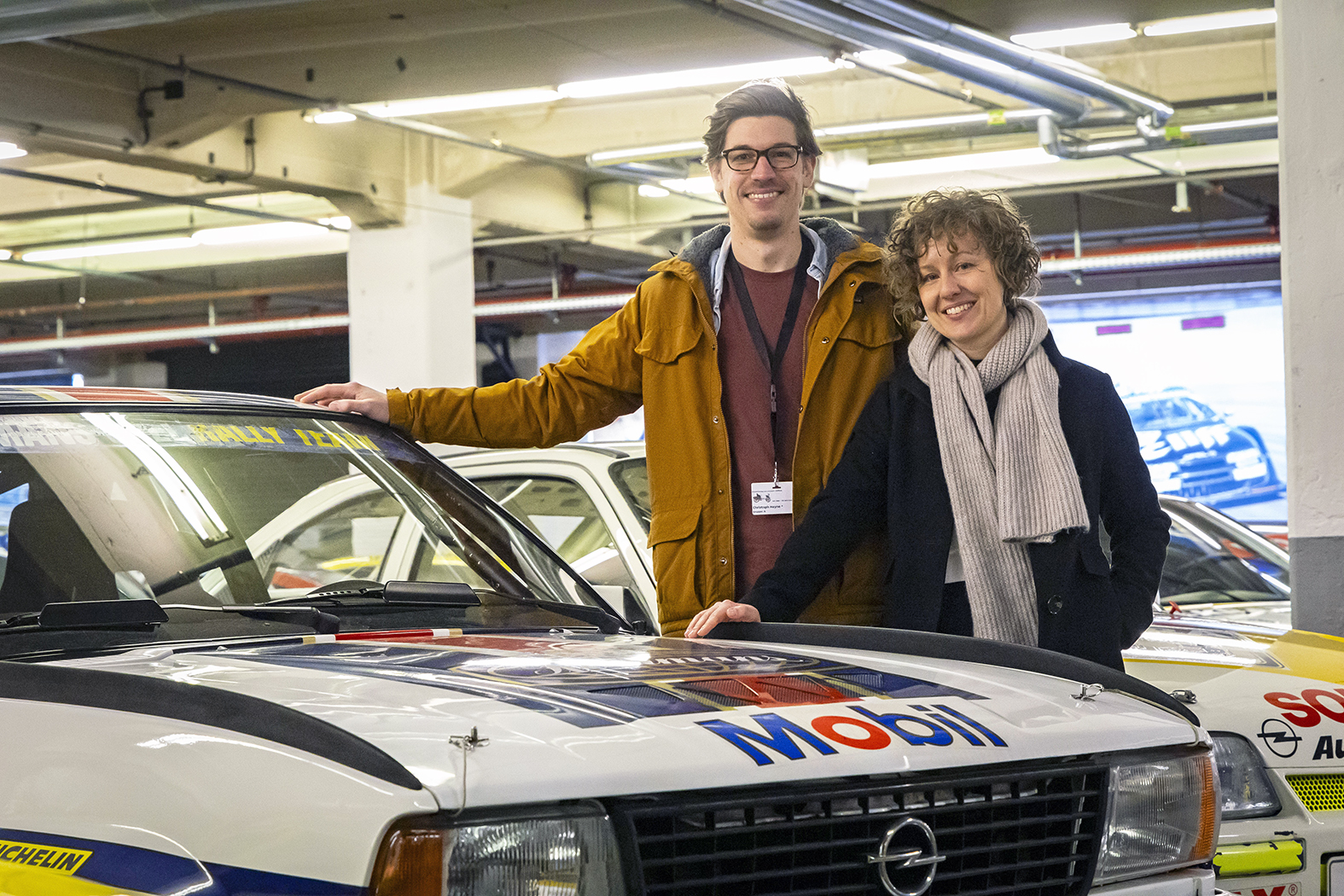
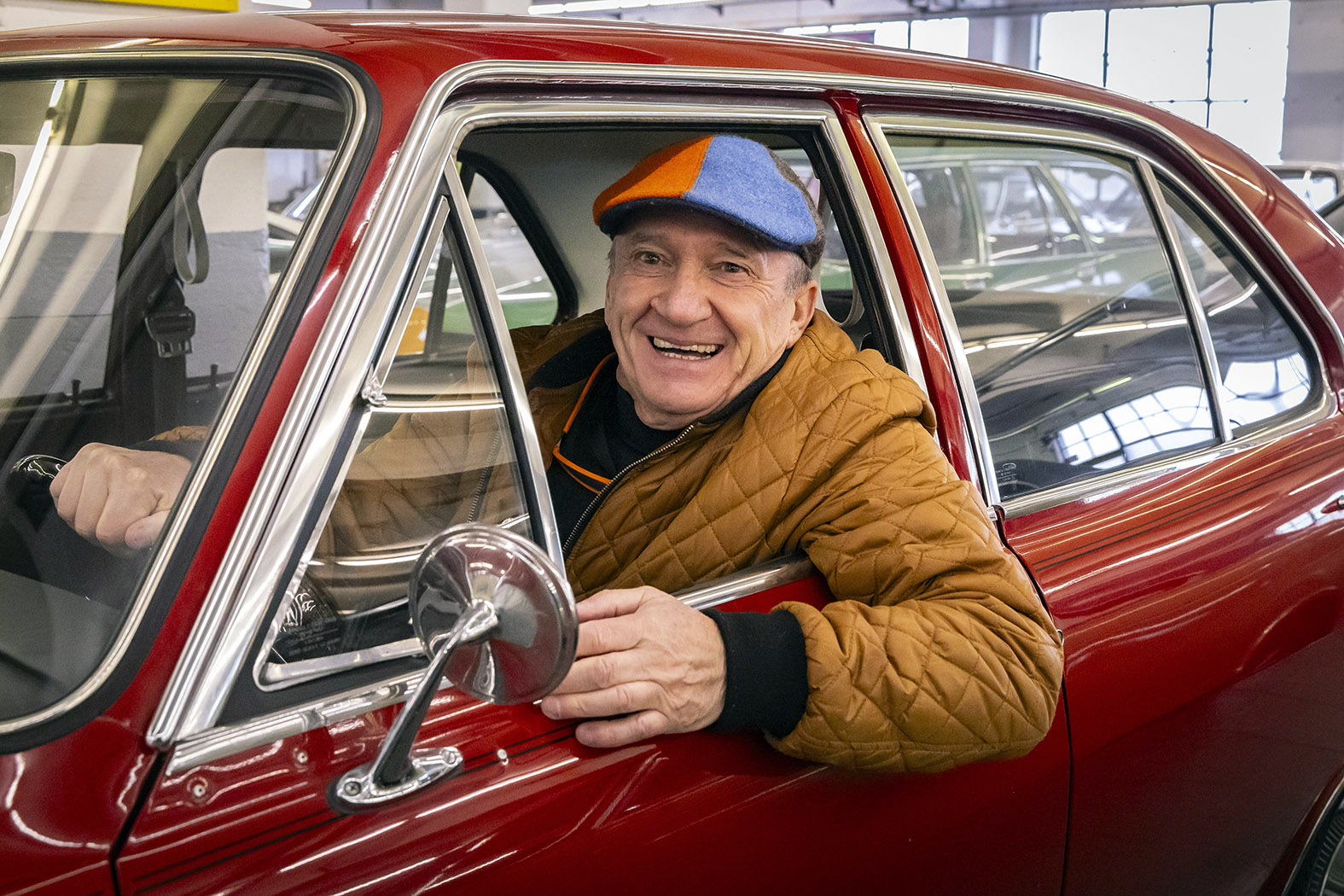
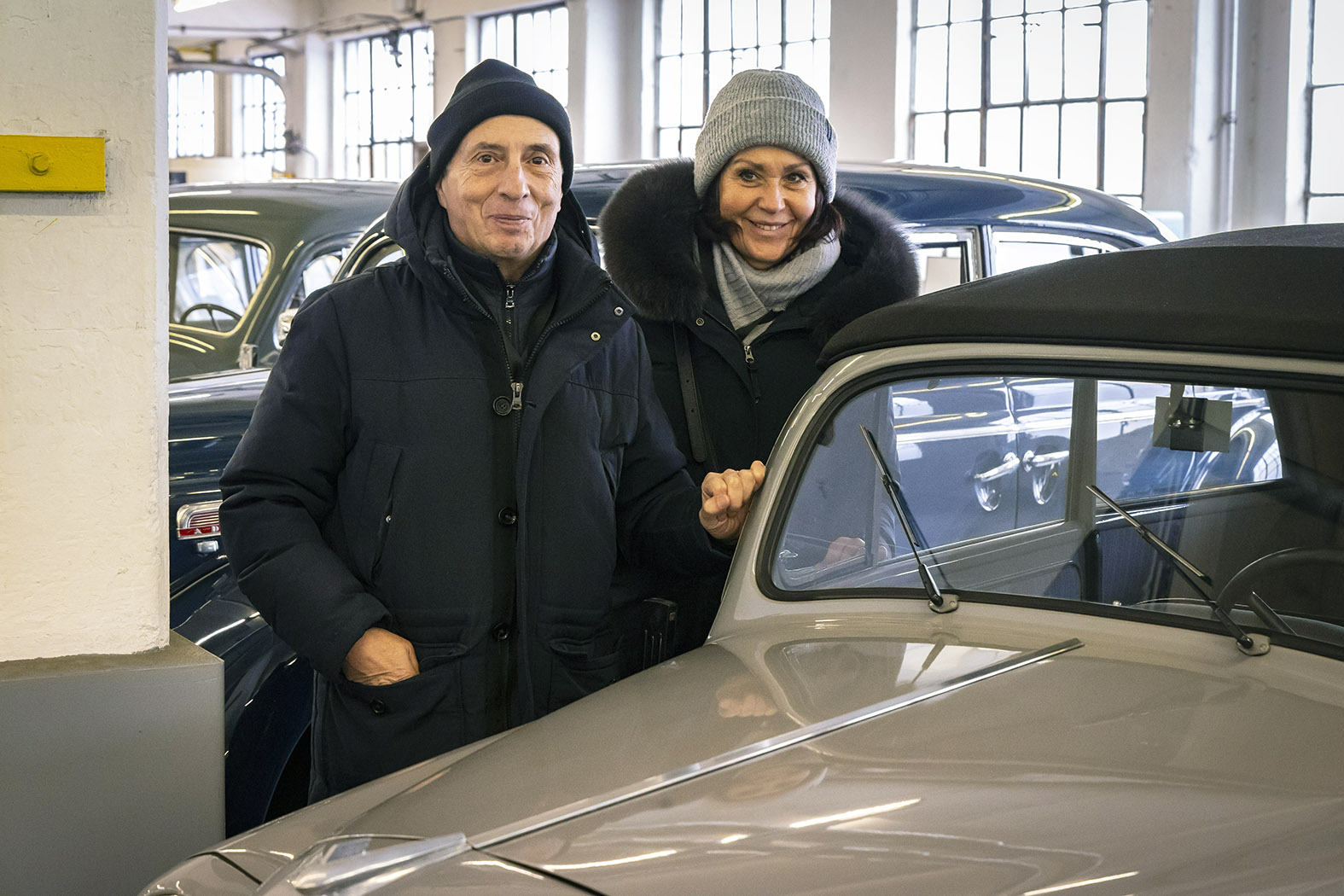
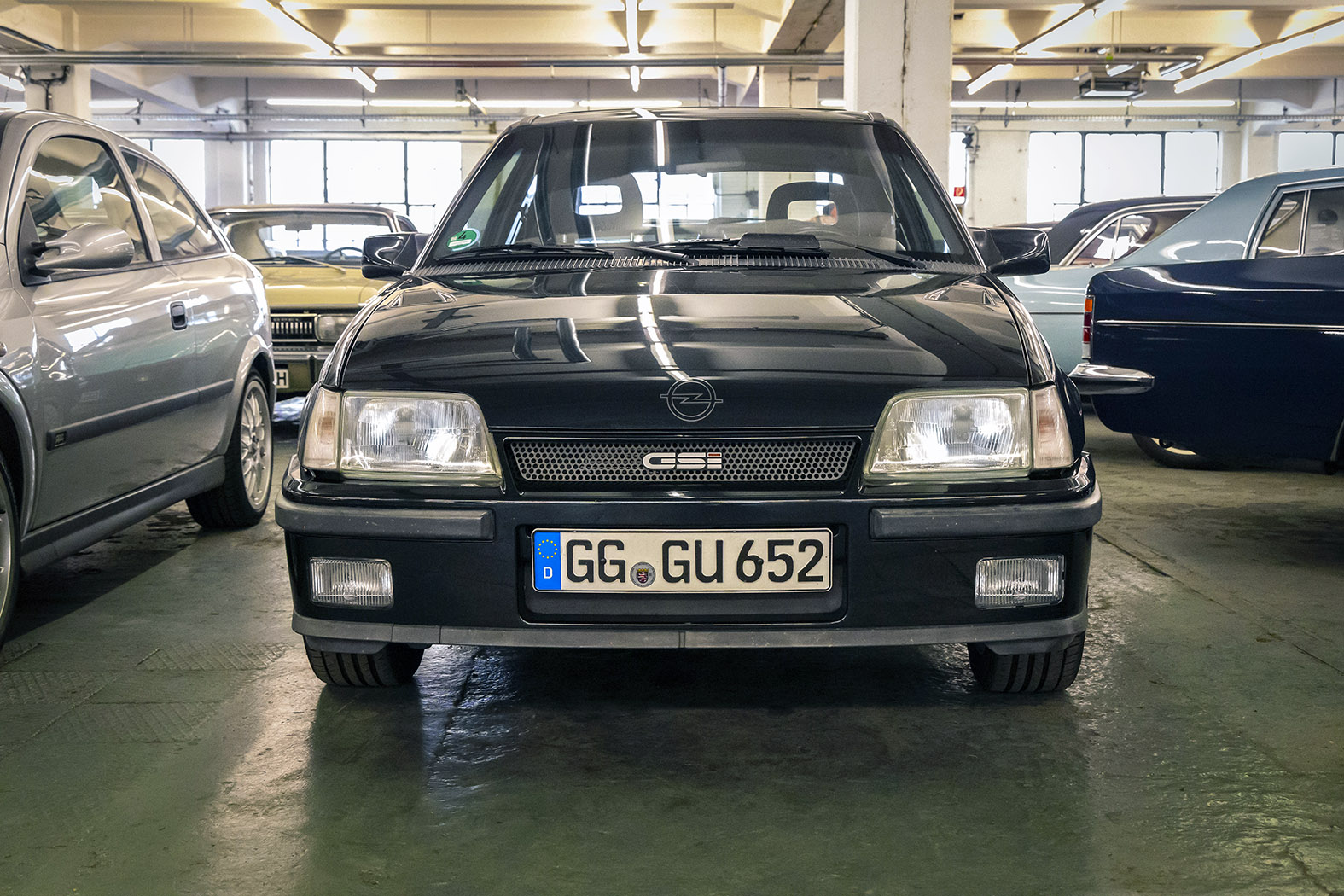
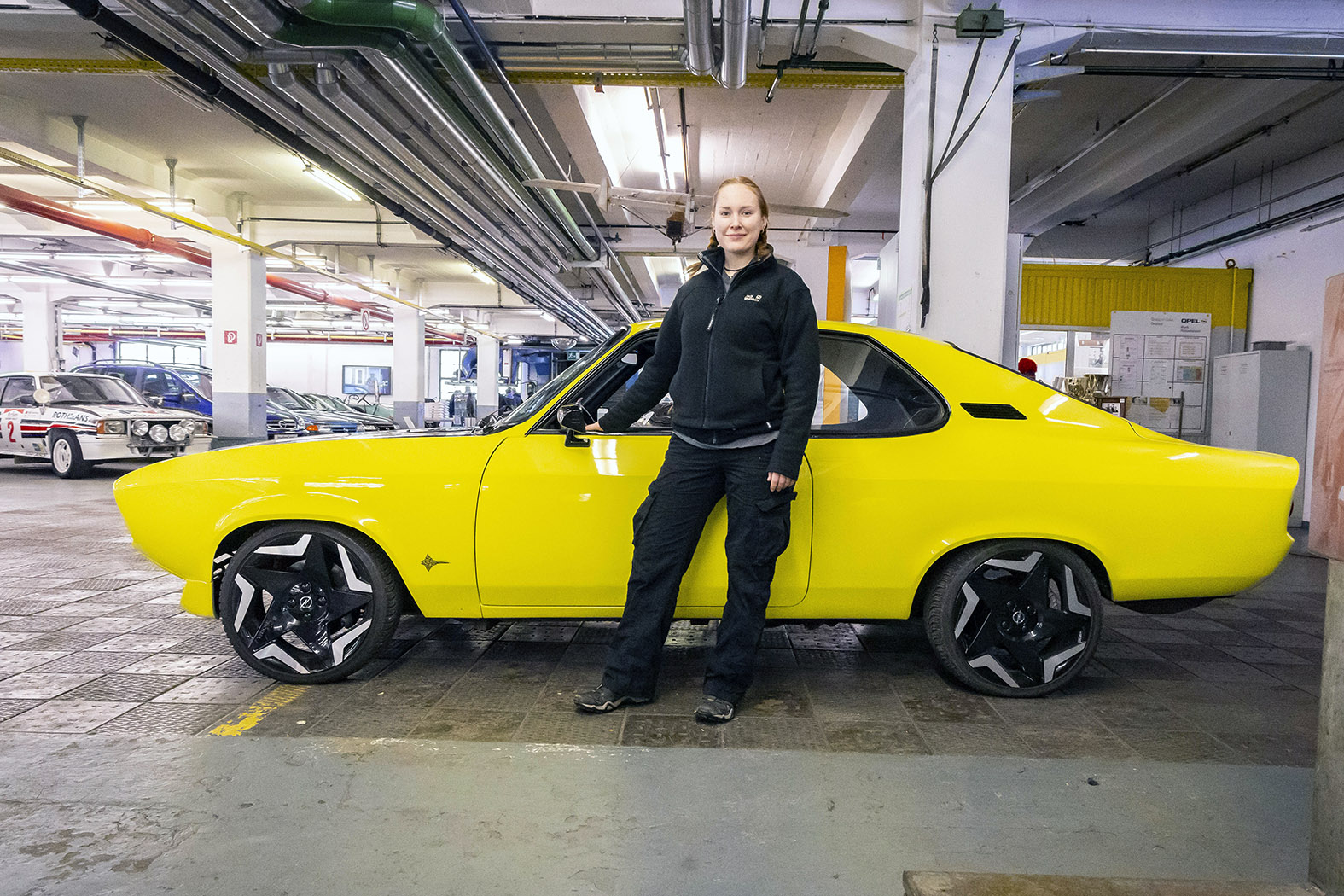
“The colleagues had some trouble getting rid of the smell of cigarettes in the interior.”
– Uwe Deller on the Kadett GSi once owned by former German Chancellor Helmut Schmidt –
Lothar Christ looks wistfully through the windshield of the Kadett A Coupé: “It must have been 1965, I was sitting in the passenger seat, had a road map on my lap and was giving my father instructions on how to get to Tarragona.” It took the family of five two days to reach the Spanish holiday resort. “The boot didn’t hold much more than our swimsuits, my little sister napped in a basket on the parcel shelf while we were driving – those were just different times,” says the former accountant with a laugh.
Infected with the “Opel Virus”
The exhibits from Opel’s motorsport history also arouse emotions. When he sees the black and white Opel Calibra, Rainer Examer thinks back to the day on which he was infected with the “Opel Virus”: “It was October 13, 1996. I was standing on the track in Hockenheim, cheering Manuel Reuter on during his lap of honour.” At the end of the season, Reuter won the International Touring Car World Championship and the “Cliff” Calibra entered the collective memory of European racing fans. Jens Cooper tells visitors how much meticulousness went into this triumph: “The technicians even lowered the windshield wiper motor to achieve the lowest possible centre of gravity.”
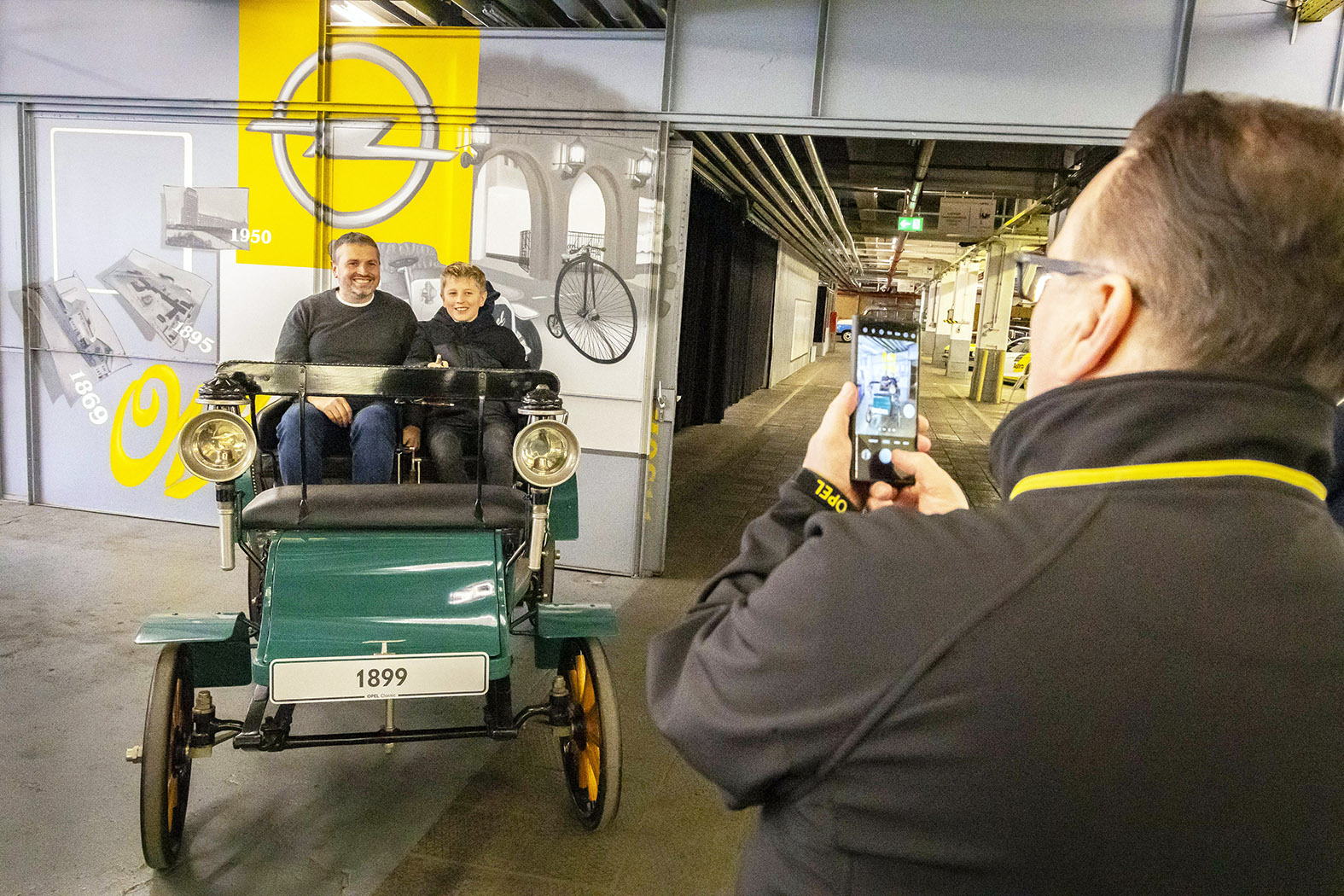
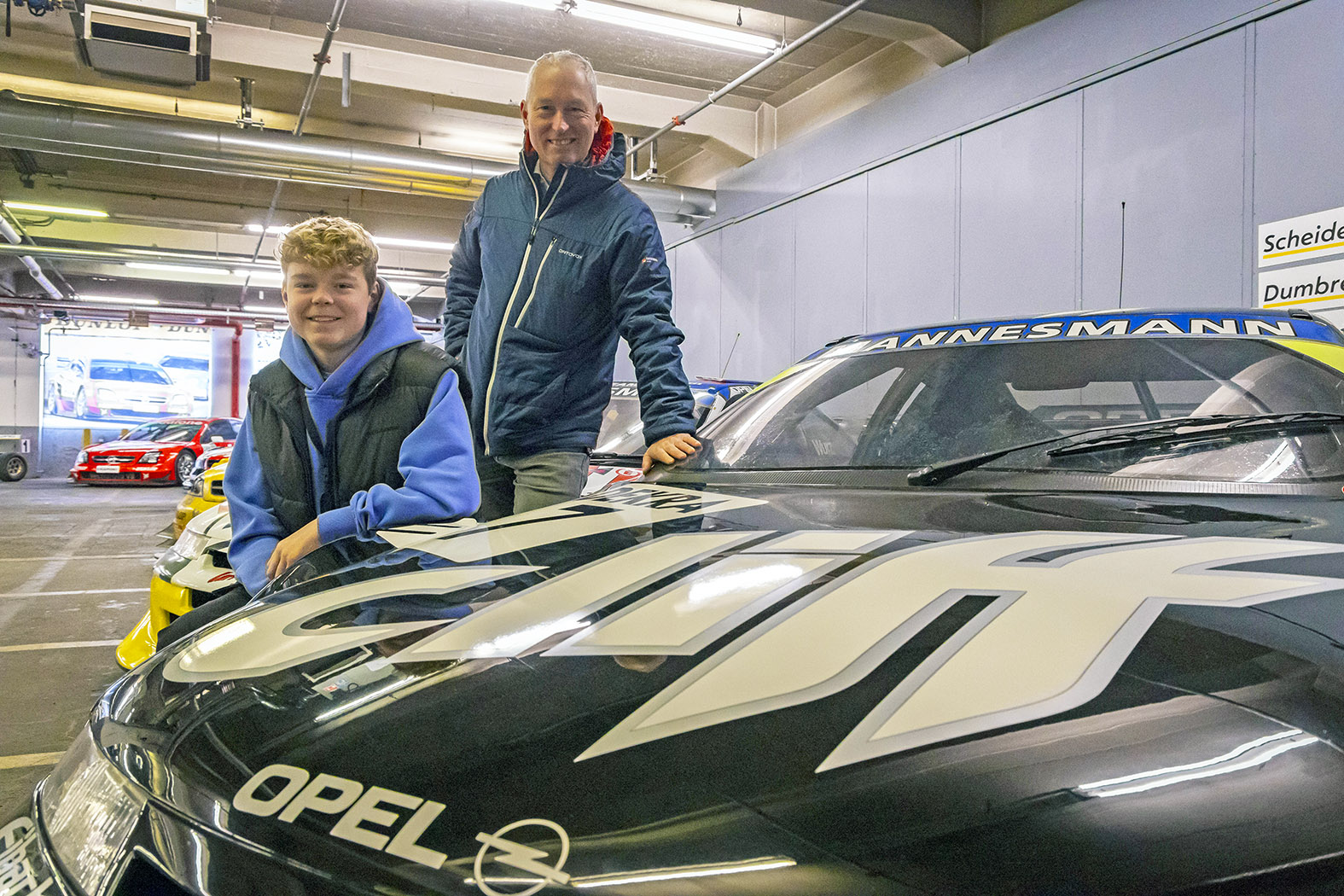
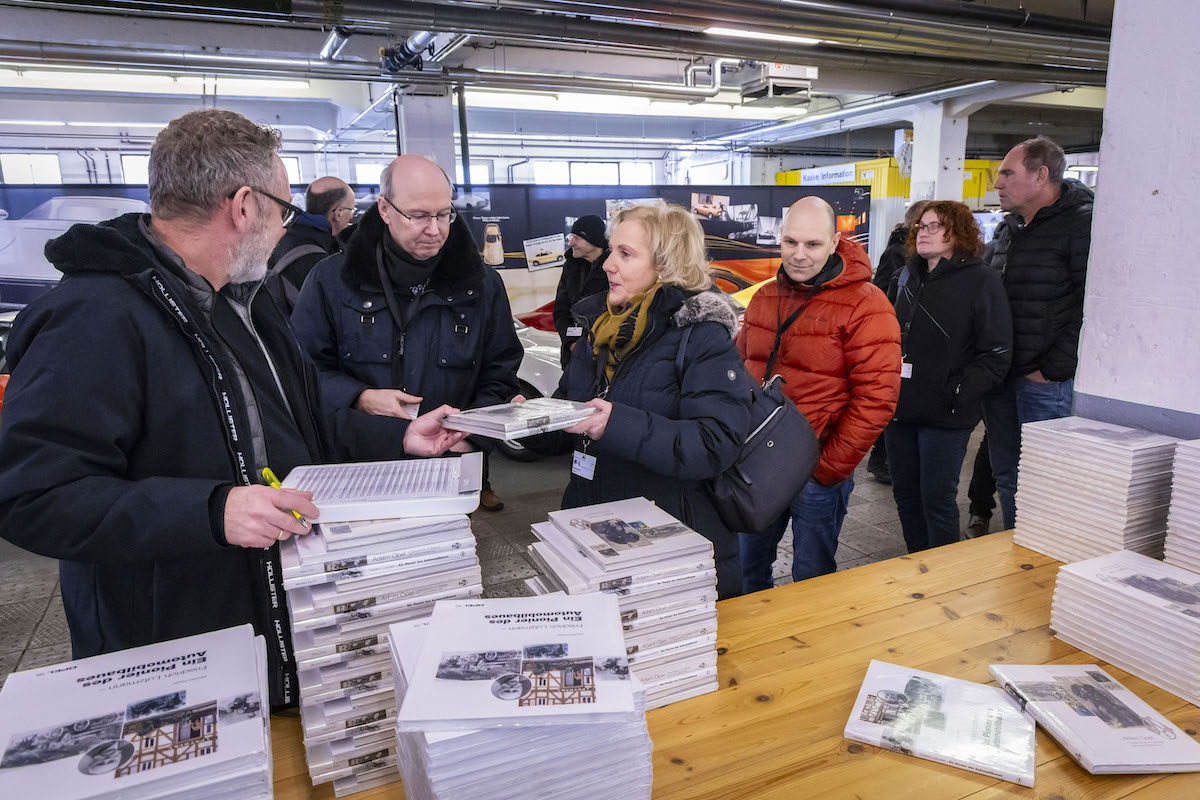
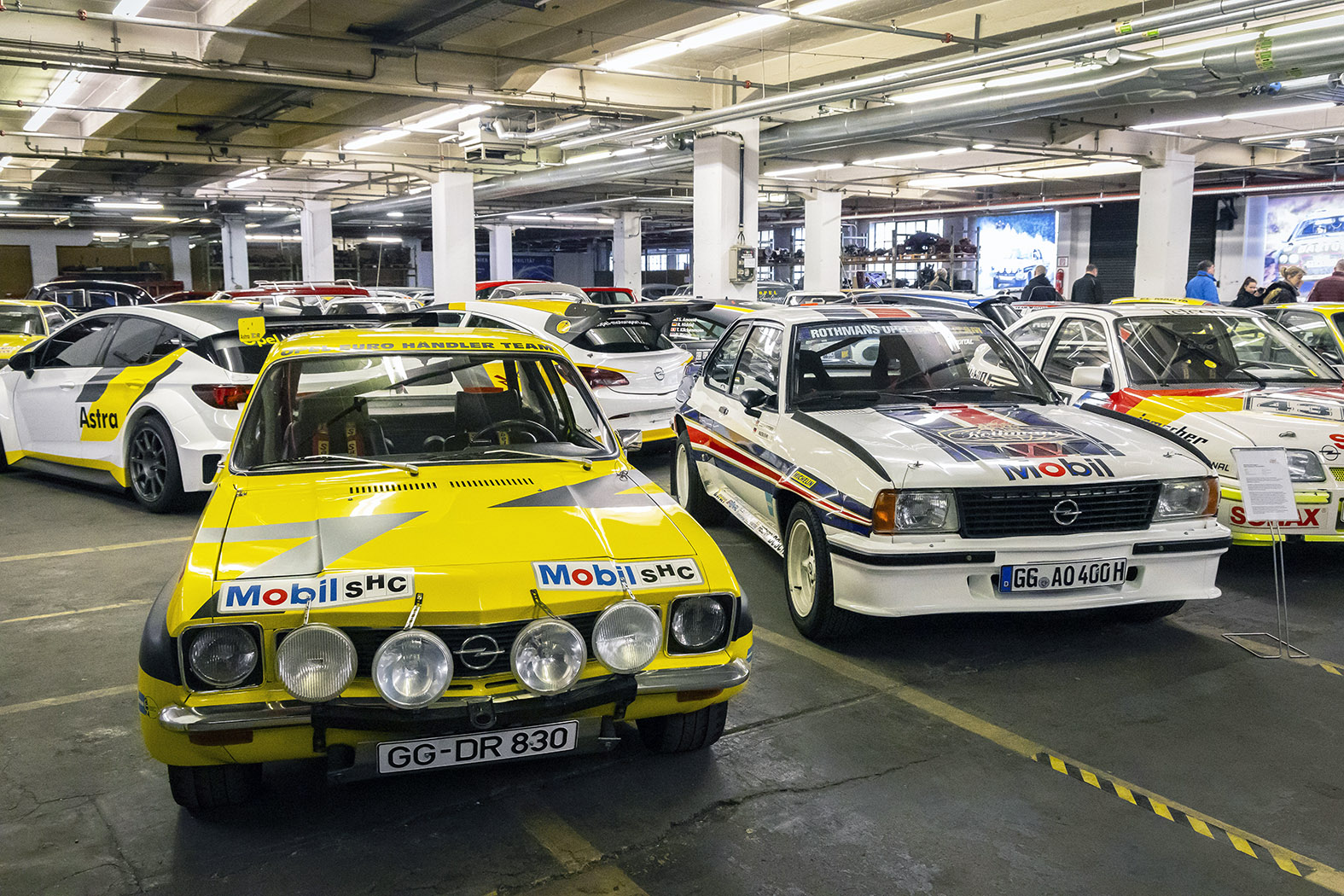
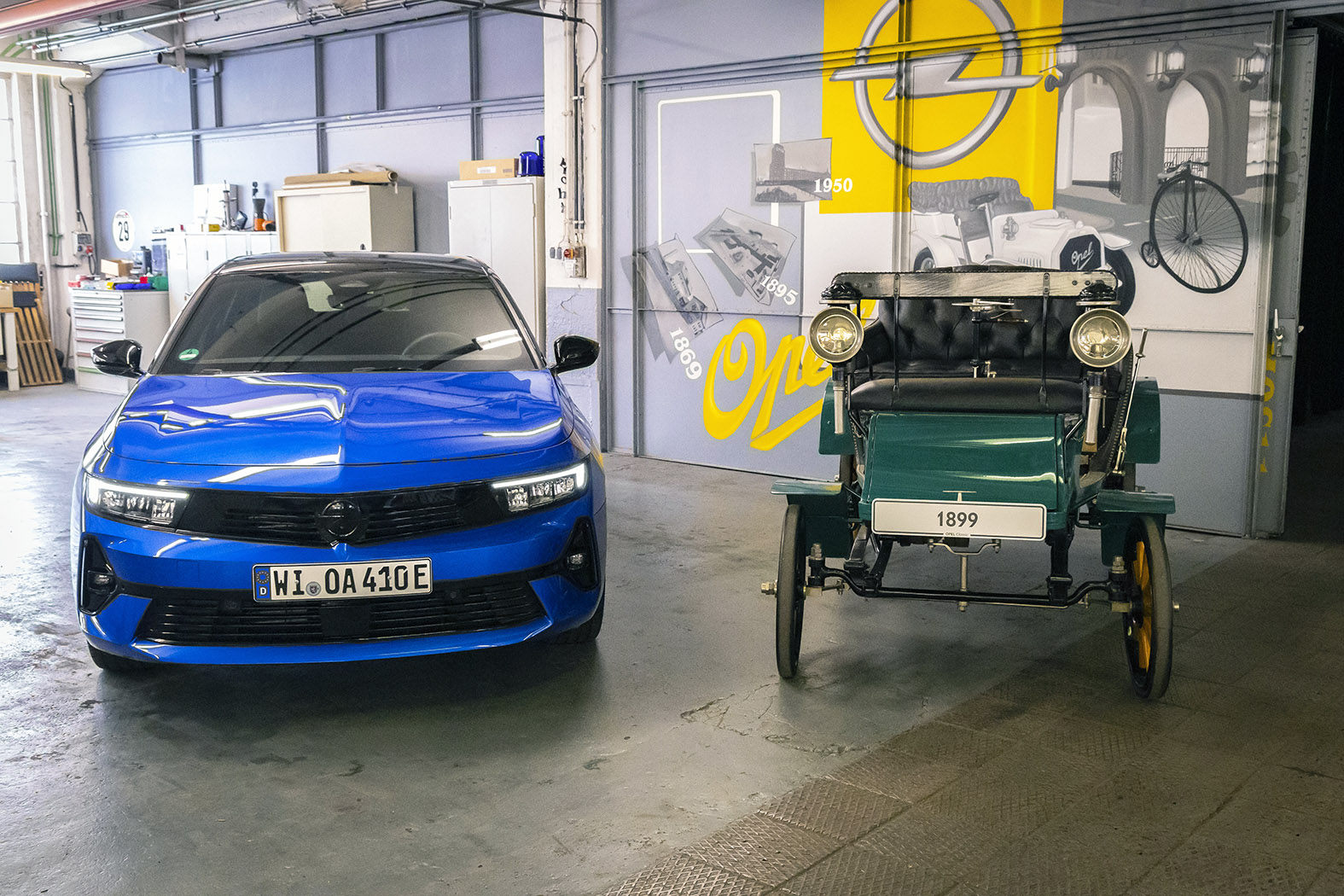
“My father has a huge Opel model car collection at home – seeing the vehicles live here is even cooler,” says Jana Pruefer as she explores the Manta GSe, the electric neoclassic that bridges tradition and a sustainable future. “I would take it straight away!” For Emil, who came to the Classic workshop together with his father Kai Kaufmann, one thing is clear: “One day, I will work at Opel.” Just like his great-grandfather, his grandfather and his father. “I want to build a car like this one with a battery,” he says when he sees the RAK-e Concept two-seater. He knows: Mobility at Opel is electric.
Glowing eyes, beaming smiles
“Experiencing the Opel DNA up close in the Classic workshop is always very special,” says Jörg Geimer. There is an exciting story behind every single exhibit. At least. Like the one behind the Astra GSi in metallic black: “The car belonged to the former Federal Chancellor Helmut Schmidt,” says Opel communicator Uwe Deller. The car, which Schmidt and his wife Loki drove for five years, is in impeccable condition – „although the Classic colleagues had some trouble getting rid of the smell of cigarettes in the interior.“
Glowing eyes, beaming faces and lots of conversations with exciting personal stories about the classic cars – it was a successful start to the anniversary year.
January 2024
